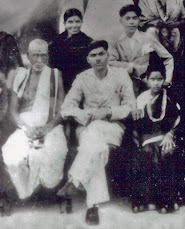Perhaps one of the most original and significant parts of this paper is Dr. Surya's observations on the concept of ‘dependence’ which is an integral part of psychoanalytical theory. To the best of my information, Dr. Surya was the first Indian author who openly questioned the relevance of the concept of 'dependence' in Indian setting. After Surya, there have been others who have written more extensively on the subject (Neki 1976, Varma 1985), but the seeds of this line of reasoning are inherent in Surya's paper in 1966. I quote him on the subject:
'In the West (UK, USA) the goal of maturity is an independent existence. There, unacceptable and unrecognized dependency longings become the focus of psychotheology the logy and psychotherapy attempts to resolve these dependency needs in a manner satisfying the requirements of a culture that idealises individual independence. In the Hindu (Indian) environment, the ideal of maturity is, satisfying the continuous dependency striving in a manner that satisfied the requirements of a culture that idealises individual submergence in complex interdependence.
In the use of the word dependency relationship we can already discern the language distortion and interpretation distortion I spoke of. A Western value judgement is unwittingly thrust on the people. There is no real equivalent word conveying the same value judgement. One speaks of 'Bandha';'Sambandha'; Bandhvya'-bond, bondship, kinship, etc., not of dependency. It would be hazardous to import this word dependency into the Indian psychotherapeutic scene."
"Integration of personality functions is the Western aim. But some degree of dissociation and ideally a detachment of the higher from the lower functions is ideal. One can speak of 'My body is suffering. I can only watch-or I do not mind. My eyes weep but I am helpless'. The witness function of the Ego-emphasised by the Hindu thought is an important step in psychotherapy. One is encouraged to be first a non-participant 'witness' of one's own reactions, before corrections can occur."
“Ours is a complex civilization. Mere cataloguing of the numerous characteristics of our people from trait questionnaires drawn up in the West will give a very contradictory and distorted picture. The Kiplingesque importunate, docile, dependent, untrustworthy Indian and the firm, gentle, but stern and unflinching Gandhian Indian are two facets of the same coin.”
Monday, July 20, 2009
THE PIONEERS OF INDIAN PSYCHIATRY-I DR. N.C.SURYA-The Lone Rider N.N.Wig-Part 6
Labels:
Bandha,
Bandhvya,
Dr. R. M. Varma,
Jaswant Singh Neki,
Sambandha











